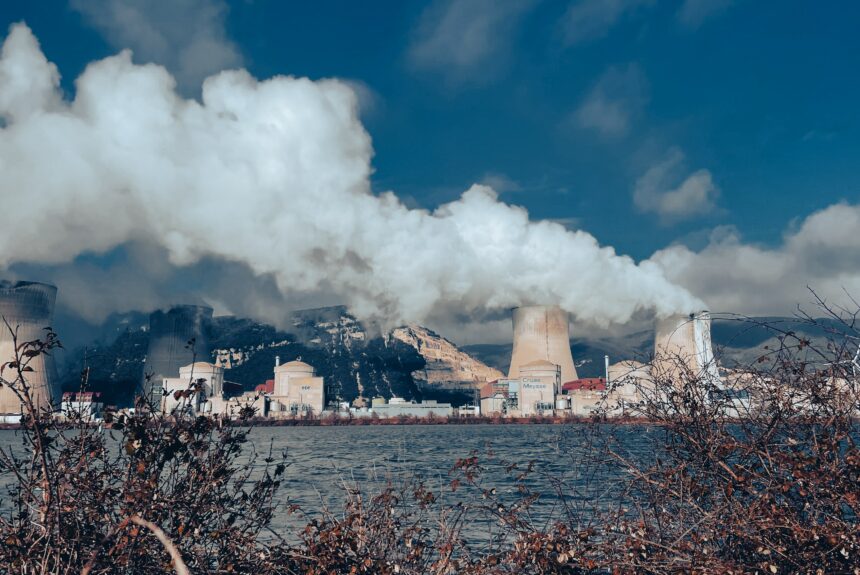From nuclear medicine to applications for deep space and advanced batteries, Curio’s clean nuclear technology is poised to revolutionize the U.S. energy market
Although most people would agree the road to decarbonization involves nuclear energy, few environmental advocates are willing to stand up for this little understood yet much-derided source of fuel. However, the answer to our carbon problems may just lie with nuclear.
>>>READ: America Could Run On Spent Nuclear Fuel…If We Let It
Take it from Edward McGinnis, a senior U.S. government executive with over thirty years of experience in the fields of national and international nuclear energy policy. Prior to joining Curio in January 2022 as its CEO, McGinnis held first-rate positions at the U.S. Department of Energy (DOE) and at the White House. His impressive track record includes serving as DOE’s Assistant Secretary for Nuclear Energy and as the Energy Department’s Deputy Assistant Secretary for International Nuclear Energy Policy and Cooperation. McGinnis also served as the Executive Director of the President’s Council of Advisors on Science and Technology (PCAST) at the White House.
In other words, McGinnis knows a thing or two about nuclear energy.
“I certainly have the tire tracks on my back,” McGinnis told CNBC in June, referring to his failed efforts to get the U.S. government to develop a long-term strategy to deal with nuclear waste.
“Essentially, both parties have said it’s politically unworkable” to devise a permanent solution, he told the news group. “But during the meantime, we have a huge, huge unresolved problem representing pretty much the largest ball and chain on the ankle of the U.S. nuclear energy sector that’s trying to transition itself for the next generation of reactors.”
Curio’s goals are not just limited to decarbonization. McGinnis’s ambitious plans for the company include developing next-generation cancer therapies utilizing highly effective radiomedical isotopes derived from spent nuclear fuel. Traditional nuclear waste can also be used to power next-generation nuclear reactors, or to source isotopes for use in high-grade medical processes. Other potential areas of impact include applications for deep space and solutions for advanced batteries.
The game-changer? Curio’s flagship NuCycle recycling process, which converts used nuclear fuel from conventional reactors into clean, safe, and carbon-free nuclear energy. The innovative technology can decompose radioactive material to 4% of its original load. The chemical process would also reduce the storage lifetime of radioactive waste from 10,000 years to a manageable three hundred.
Importantly, the process is also proliferation-proof. Unlike other existing processes that isolate and extract pure plutonium–i.e. PUREX (plutonium uranium reduction extraction)–Curio’s closed fuel cycle ensures the production of proliferation-hardened alternative fuels. This self-protection mechanism is built in to adhere to nuclear weapons non-proliferation treaties, according to the Curio website.
Currently, just 4% of the potential energy value of spent nuclear fuel has ever been used. The rest of that untapped energy is what McGinnis refers to as a “national treasure.” If successful, America’s so-called “nuclear waste” could meet global energy demand for the next two decades.
“That’s the motherlode of clean energy,” McGinnis said in an opinion article published by The Washington Examiner in February.
Nonetheless, nuclear still gets a bad rep. The problem is too many people associate this reliable energy source with tail-risk catastrophic events. McGinnis thinks this can be solved by communicating effectively with the public.
>>>READ: As Europe Faces an Energy Crisis, Nuclear Power Gains Momentum
“Today, waste ranks as the primary cause of public opposition to nuclear power. Twelve states have moratoriums on nuclear facility construction. There is no doubt that yesterday’s nuclear waste is holding back the nuclear reactors of tomorrow,” he noted in his article.
The U.S. generates an estimated 2,000 metric tons of new nuclear fuel annually, according to DOE’s Office of Nuclear Energy. This is in addition to the 86,000 tons of nuclear waste already in existence. Curio will eventually be able to repurpose all 86,000 metric tons of the country’s homegrown nuclear waste, McGinnis claims:
“We would take title of all 86,000 metric tons and the federal government and the public would never see that high level radioactive material on their books again, we would take the burden of it. And we would take trash and turn it into products and treasures. That’s our business line.”
The company is scheduled to build the first-of-its-kind nuclear waste reprocessing facility by 2035. Expected to cost about $5 billion, the commercial plant will be able to recycle 4,000 metric tons of high-level radioactive waste a year.
A pilot facility is already in the works.
Curio is currently in its pre-revenue phase, but the ten-person startup envisions a new era of nuclear innovation powered by the atom. Not only can nuclear recycling facilities create thousands of well-paying jobs, but solving the nuclear waste problem is critical to securing American energy independence and reducing U.S. reliance on foreign fuel (particularly Russian oil, which accounts for 8% of all U.S. energy imports, according to EIA).
“The U.S. nuclear energy sector has the know-how, technology, and the companies to utilize this treasure effectively. All it takes is the will to address used nuclear fuel for what it is: one of the greatest assets of this generation,” the Curio CEO says.
Nathalie Voit is a freelance content creator and a graduate of the University of Florida. She is an alumni of The Heritage Foundation’s Young Leaders Program.
The views and opinions expressed are those of the author’s and do not necessarily reflect the official policy or position of C3.
